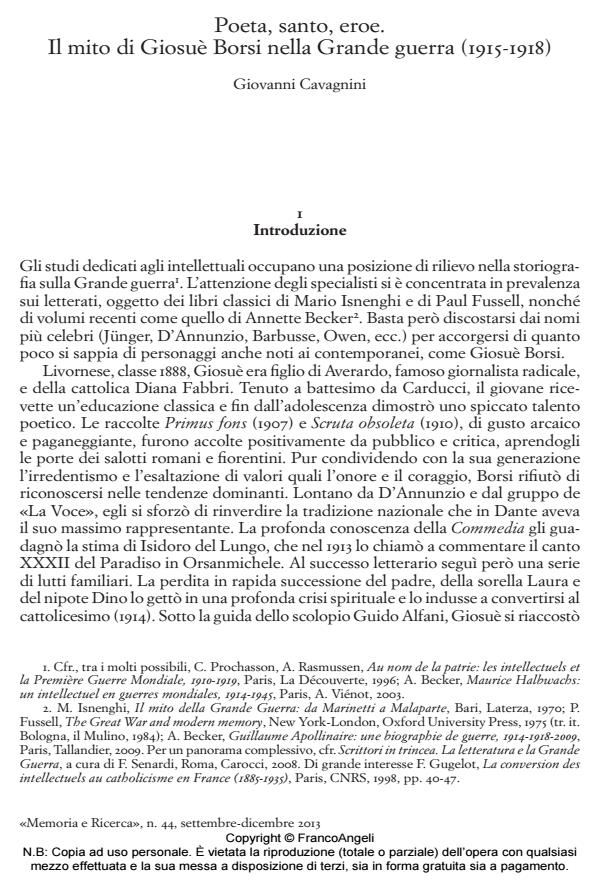A poet, a saint, a hero. The myth of Giosue Borsi during the Great War (1915-1918)
Journal title MEMORIA E RICERCA
Author/s Giovanni Cavagnini
Publishing Year 2013 Issue 2013/44
Language Italian Pages 16 P. 107-122 File size 818 KB
DOI 10.3280/MER2013-044007
DOI is like a bar code for intellectual property: to have more infomation
click here
Below, you can see the article first page
If you want to buy this article in PDF format, you can do it, following the instructions to buy download credits

FrancoAngeli is member of Publishers International Linking Association, Inc (PILA), a not-for-profit association which run the CrossRef service enabling links to and from online scholarly content.
A Catholic convert since 1914, the Tuscan poet Giosue Borsi died on the Isonzo battlefield at the end of 1915 and was celebrated by intellectuals, politicians and clergymen as the symbol of the "greater Italy" born in the trenches. While anti-clericals and atheists lost interest after the hanging of Cesare Battisti - a far more fascinating figure to them - Catholics made of Borsi the emblem of the union of faith and patriotism, but also the vehicle of a political and religious project, that considered submission to God and to the Church as the only way to national greatness.
Keywords: Catholicism, nationalism, Great War, intellectuals, memory, anti-clericalism
Giovanni Cavagnini, Poeta, santo, eroe. Il mito di Giosuè Borsi nella Grande guerra (1915-1918) in "MEMORIA E RICERCA " 44/2013, pp 107-122, DOI: 10.3280/MER2013-044007